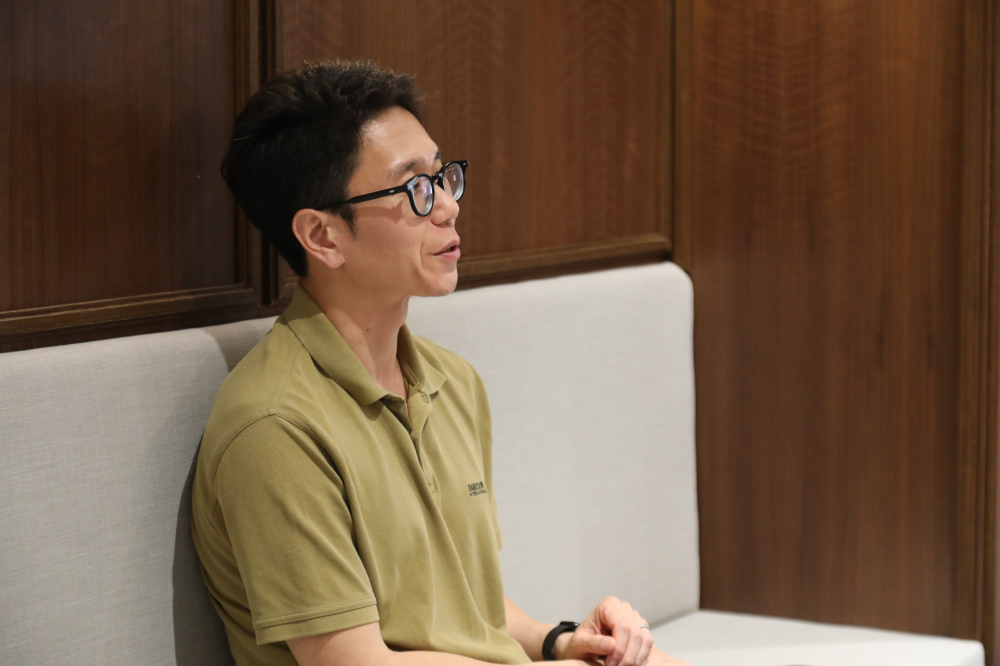News
KUBS News
[Interview] A Simulation Strategy to Reduce Judicial Delays in India
– Professor Jeunghyun Kim Publishes SK Tier 1 Paper

Q1. Congratulations on publishing a paper in an SK Tier 1 journal. How do you feel about this achievement?
I am truly honored and grateful to have my paper published in an SK Tier 1 journal. There were numerous challenges and iterations throughout the research process, but it is deeply rewarding to see these efforts culminate in publication in a prestigious international journal. What feels especially meaningful is that the findings were finalized at the right time and shared through such a respected platform. I hope to continue conducting research that offers genuine academic value.
Q2. Could you briefly introduce the main focus and background of your paper?
This study focuses on addressing the severe judicial delays experienced by the Supreme Court of India by proposing an operations strategy. Known globally for its chronic case backlogs, the Indian Supreme Court presented an opportunity to analyze a complex real-world issue from a service operations perspective. I collected actual case data from the Court’s official website and developed a simulation model that incorporates various operational scenarios.
Importantly, the model reflects the Court’s real-world operational structure, including both regular and holiday work schedules. Rather than suggesting a simple increase in personnel, the research demonstrates how improvements in operational methods alone can significantly reduce trial delays.
Q3. What motivated you to pursue this research?
This research didn’t originate from a particular social mission. I’ve always found fulfillment in solving complex problems—and if that process happens to benefit society, all the better. This project followed that same spirit.
Judicial delays in the Supreme Court of India extend far beyond legal concerns; they represent systemic inefficiencies that affect the broader society. In India’s labor-intensive economy, a delayed ruling can halt or disrupt economic activity. Some individuals are unable to start jobs due to unresolved legal issues, and contractual disputes may take anywhere from 300 days to three, or even ten years to resolve. Recognizing these structural inefficiencies, I set out to analyze the problem quantitatively and explore actionable improvements.
Q4. What potential impact do you think this research could have on society or industry?
This study highlights how optimizing the operational aspects of judicial systems can bring broad societal and economic benefits. Legal delays lead to postponed decision-making and stalled activity at every level—individuals, businesses, and governments alike.
Our simulation results show that, with the adoption of appropriate operational strategies, average trial delay times can be reduced by as much as one-third. Although the exact economic impact has not been quantified, a reduction of that magnitude would likely produce meaningful improvements across society. I believe enhancing judicial efficiency is a critical task that advances both fairness and productivity.
Q5. Could you share your future research plans or areas of interest?
Many business research projects are inspired by real-world developments. For example, the emergence of Uber spurred numerous studies on matching algorithms and pricing strategies. My approach differs slightly: rather than beginning with a specific application, I ask which kinds of problems can be addressed using a given analytical method.
Going forward, I plan to continue exploring the practical relevance of my methodological tools. My work is method-driven rather than problem-driven—but if the method proves effective in solving real-world challenges, I consider that a meaningful academic contribution.
Q6. Do you have any advice for junior researchers or students?
Above all, I encourage you to broaden your perspective. The world is full of compelling, high-impact problems—but without a wide field of view, you may never discover them. Staying attuned to what’s happening beyond your immediate environment is essential.
Also, don’t avoid difficult challenges. Each problem requires its own suitable set of tools—its own methodology. If you stick only to what you’re comfortable with, you may miss opportunities to solve important issues. I recommend that students step outside the business school and engage with courses in mathematics, industrial engineering, economics, and beyond.
You don’t need to master every subject. Sometimes just knowing that a certain method exists can completely change the way you understand a problem and dramatically expand the scope of your research. I firmly believe that a broad intellectual curiosity and a balanced learning approach are the foundation of impactful research.
Summary of Professor Jeunghyun Kim’s Paper
“Service Operations for Justice-on-Time: A Data-Driven Queueing Approach”
A lack of resources in judicial systems can lead to trial delays, hinder economic growth, and ultimately erode access to justice. This study examines the Supreme Court of India through the lens of service operations and proposes realistic strategies for improvement.
The Indian Supreme Court operates under a structure where the same judge repeatedly reviews a single case—a system that can be modeled as a case management queue. Based on actual case data, the research team developed a simulation model that realistically represents the two-phase judicial process: pre-admission and post-admission. The model reflects actual conditions, including shared judicial capacity across phases and non-working days such as holidays.
The study found that inefficiencies arise from misalignment between case scheduling and judicial capacity, as well as from rigid calendaring systems. However, by introducing more flexible scheduling, average trial delays could potentially be reduced by up to 65%.
This research offers a data-driven and operationally feasible alternative for enhancing judicial system performance and delivering more timely and equitable legal services.


